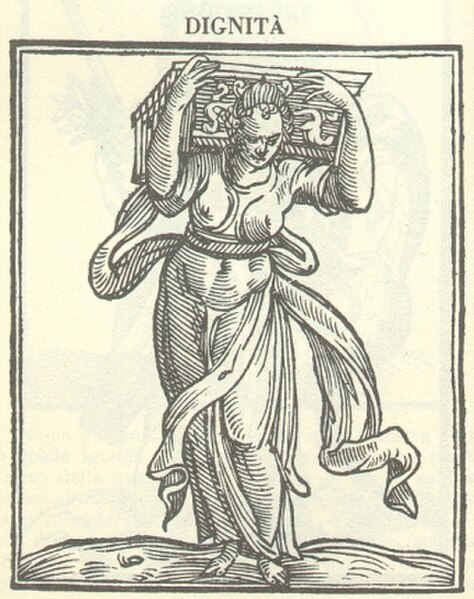The "image of God" is a concept and theological doctrine in Judaism and Christianity. It is a foundational aspect of Judeo-Christian belief with regard to the fundamental understanding of human nature. It stems from the primary text in Genesis 1:27, which reads: "So God created man in his own image, in the image of God created he him; male and female he created them." The exact meaning of the phrase has been debated for millennia.
In "Creation of Adam," Michelangelo provides a great example of the substantive view of the image of God through the mirroring of the human and the divine.
Issues surrounding "the fall" and "original sin" often became a crucial points of contention among Christian theologians seeking to understand the image of God.
Hebrew Midrashim depict the image of God in democratic or universal terms.
Dignity in some of its modern usages has come to mean the right of a person to be valued and respected for their own sake, and to be treated ethically. In this context, it is of significance in morality, ethics, law and politics as an extension of the Enlightenment-era concepts of inherent, inalienable rights. The term may also be used to describe personal conduct, as in "behaving with dignity".
Woodcut from Cesare Ripa's Iconologia depicting the Allegory of Dignity




